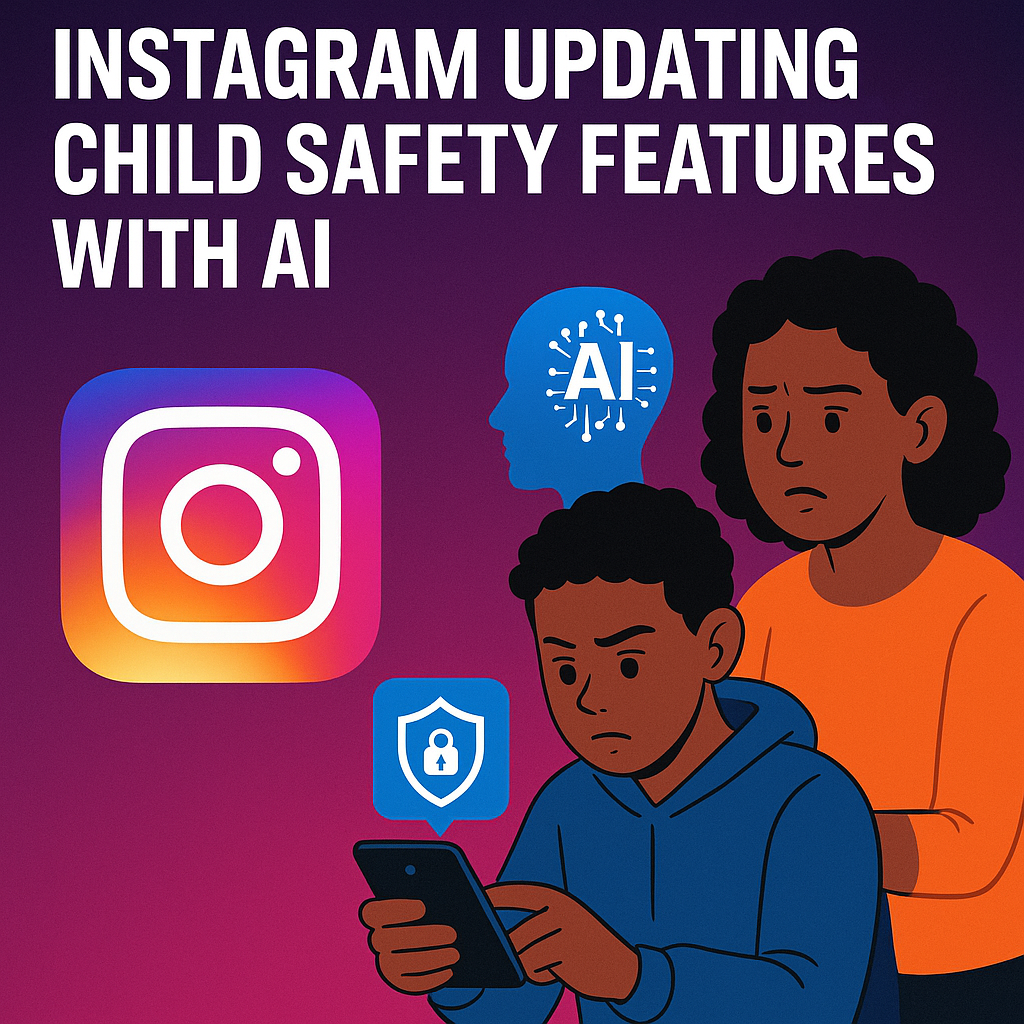Written by Jermaine Magethe
Instagram is introducing additional safeguards for children by updating its Teen Accounts feature and introducing new age-verification processes powered by artificial intelligence. It is coming at a time of heightened concerns elsewhere in the world and specifically throughout Kenya and much of Africa about safety for children and adolescents online.
It is a symptom of an even broader commitment to ensuring that kids are given the resources, support, and guidance that they need if they are going to remain safe on social media.
Since introducing Teen Accounts in 2024, Instagram has signed up more than 54 million teenagers worldwide onto these specially tailored accounts, which automatically limit who can reach out to users, block hostile or age-inappropriate content, and curtail the amount of time teenagers spend on the platform. Additionally, minors under the age of 16 are now required to get approval from a parent or guardian before they can change their settings. These safeguards are referred to by Meta, the parent firm of Instagram, as a way of giving parents peace of mind and assisting younger users in establishing healthier digital routines.
What’s especially timely for African families is the recent news that Instagram is now warning parents directly in the app, encouraging conversations with their teens about the importance of honesty when sharing age information online. With so many teens often signing up with fake birthdates to circumvent restrictions, these conversations—and the tools to make them happen—are more vital than ever.
To help parents who may not always have the time or technical know-how to manage these settings, Instagram is now testing artificial intelligence in the U.S. that can identify when a user may have falsified their age. The system looks at behavioral cues and other signs to identify teens who may be running adult accounts and automatically flips them into Teen Account safeguards. In the event something is wrong, their parents and they themselves can manually alter their settings.
Though the AI technology is currently tested in America, the future expansion of it into overseas markets like Kenya can help have an added safety feature where kids are getting increasingly online-savvy in their countries.
Yet concerns exist if these products work. A newly published report indicated that even with Teen Account settings, researchers were able to create accounts with fake birthdates and were immediately exposed to sexually explicit material, risky beauty ideals, and other forms of potentially dangerous media. Meta has responded to such allegations by stating that the report contains inaccuracies and does not reflect how Teen Accounts are meant to function. The challenge of age verification online is a problem throughout the industry, and while AI is a major development, no system is yet flawless.
In Kenya, where penetration of the internet is growing among young people but digital literacy and protections lag behind, these advances highlight an immediate need for homegrown solutions. Such efforts include Mtoto News’ ongoing work through its “Sauti Zetu” program, which amplifies children’s voices and empowers them with tools to stay safe online. The show educates kids about their digital rights, empowers them on how to recognize and report digital threats, and engages parents and caregivers to build a better-informed, engaged digital safety community.
Mtoto News’ work demonstrates how local organisations can connect the dots from global policy to grassroots-level impact. By listening to what children have to say and operating hand in hand with communities, they ensure safety isn’t just something programmed into an app’s features—it’s something truly embedded in the way children use technology on a daily basis.
As the internet becomes more and more part of everyday life, especially for Africa’s children, it cannot be solely the burden of technology companies to keep children safe online. It’s everyone’s job, including parents, teachers, policymakers, community organizations, and even the children themselves. We can create a safer internet for all children, account by account, with the right balance of technology, conversation, and love.

